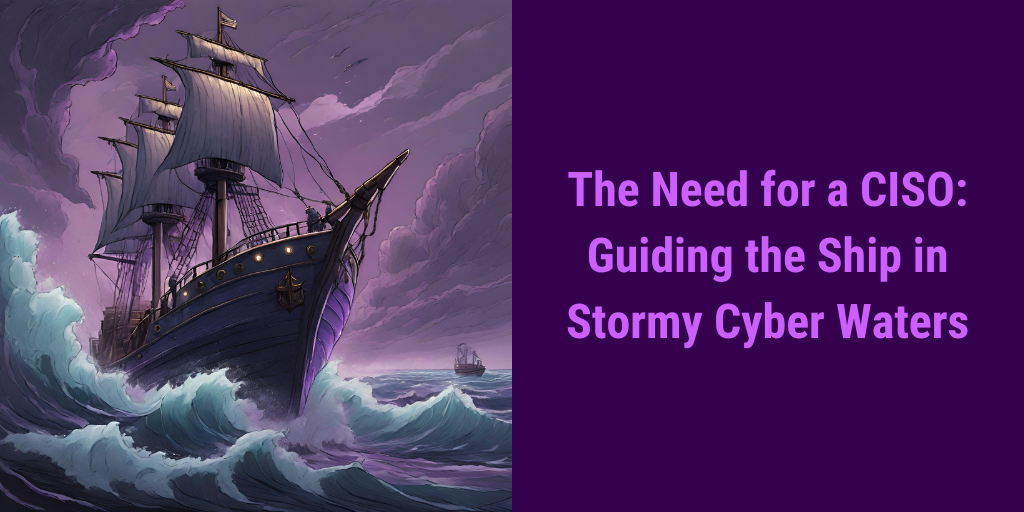
In today’s digital age, where the importance of data and information security is paramount, the role of a Chief Information Security Officer (CISO) has become indispensable. While cybersecurity is undoubtedly a collective effort, a dedicated leader at the helm is essential to steer the ship in the right direction. Here’s why the need for a CISO has become more pronounced than ever:
1. Develop Strategy: The CISO plays a pivotal role in formulating a robust cybersecurity strategy. This involves assessing current threats, identifying vulnerabilities, and strategizing how to protect the organization from cyber risks effectively.
2. Oversee People, Process, and Technology: Managing the triumvirate of people, processes, and technology involved in providing cybersecurity requires a leader with a comprehensive view of the organization’s security needs.
3. Set and Approve Data Protection Policy: The CISO is responsible for establishing and validating data protection policies that safeguard sensitive information from breaches and unauthorized access.
4. Develop Budget for Security: Allocating resources for cybersecurity is a critical aspect of the CISO’s role. They must create budgets that adequately address security needs, ensuring that the organization is well-prepared to defend against cyber threats.
5. Communication with Senior Executives and the Board: The CISO acts as the liaison between the security team and senior executives or the board. They convey the security posture, ongoing threats, and the organization’s current state of security.
6. Develop a Roadmap: Charting the course for future security initiatives is another task for the CISO. They create a roadmap that aligns with the organization’s goals and evolving cyber threats.
7. Ensure Compliance: Staying compliant with industry regulations and data protection laws is a non-negotiable responsibility. The CISO ensures that the organization adheres to these standards to avoid legal and reputational risks.
8. Single Point of Contact: Acting as the single point of contact for the board of directors and senior executives, the CISO ensures that they are well-informed about the organization’s security strategies and its ability to manage cyber risks.
9. Periodic Assessment of Cyber Risks: The CISO continuously assesses the organization’s cyber risk landscape and initiates measures to mitigate these risks. They keep a watchful eye on the ever-evolving threat landscape.
10. Lead Incident Response and Monitor Threat Intelligence: In the unfortunate event of a security breach, the CISO takes the lead in incident response. They also keep a vigilant eye on emerging threat intelligence to stay one step ahead of potential attacks.
In the turbulent sea of cyber threats and vulnerabilities, the CISO is the steady hand that guides organizations to safety. Their role is essential in protecting sensitive data, maintaining operational continuity, and preserving the trust of customers and stakeholders in an increasingly interconnected and data-driven world.
The need for a CISO is not just an organizational requirement; it’s a critical element of responsible and effective cybersecurity strategy.
Contact us today to discuss how we can assist you in strengthening your cybersecurity defenses and protecting your organization from the ever-evolving cyber threats.
Phone: 972-527-4217
Email: [email protected]
Copyright© 2004-2024 SoftechWorks, LLC D/B/A Endarity. All Rights Reserved
Phone: 972-527-4217 | Email: [email protected]
Copyright© 2004-2024 SoftechWorks, LLC D/B/A Endarity. All Rights Reserved
This website may use cookies and collect information. For more information, please visit: https://endarity.com/privacy-policy.

Contact Us Today!